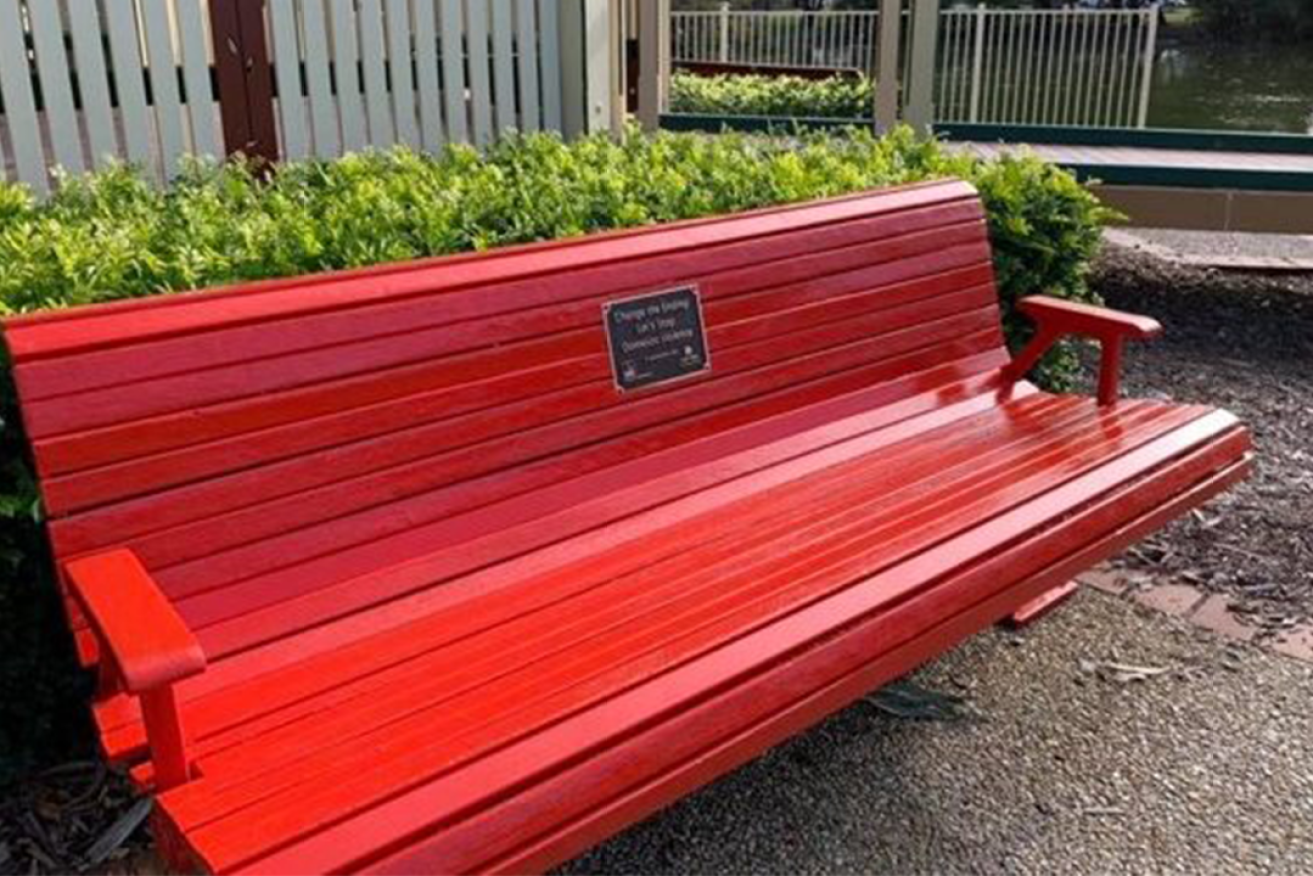Bins and benches our new tools to battle domestic violence
If you spot a park bench painted red or suddenly find new stickers plastered on your wheelie bin, it’s just your local council, and they’re hoping you notice.


The red benches and bin stickers are spreading across Queensland under a combined awareness-raising offensive by Queensland’s 77 councils on domestic and family violence.
For the first time, councils are pursuing co-ordinated “simple, cost-effective” measures in communities to prevent domestic and family violence.
With local government among the state’s largest employers, co-ordinated programs are also being run for staff for the first time.
Local Government Association of Queensland Domestic and Family Violence Project Officer Jim Boden said the state-wide network aimed to support Queensland’s DV crisis services.
“Quite often councils are the biggest employers in the areas they are based, so we want councils to do what they can to the best of their capacity.
“This is the first opportunity that is completely inclusive of all councils. Councils will continue to have an individual focus and a different dynamic in terms of their own staff, so it’s not a one-size-fits-all for all councils, but this is the first occasion where we are trying to drive consistency.”
From July 1 to September 30, Queensland courts issued 13,417 domestic violence orders, up 2345 or more than 21 per cent on the same period last year. Police have laid 7,206 charges against offenders in Queensland for breaching DVOs in the same three-month period.
According to research group Counting Dead Women Australia, 40 women have died across the country in violent domestic incidents this year.
The grim statistics include the horrific death of Brisbane mum Hannah Clarke in February. Clarke, 31, and her children all aged under six, Aaliyah, Laianah and Trey, were murdered in Brisbane’s Camp Hill after her estranged husband Rowan Baxter ambushed them on the morning school run.
Baxter doused them with petrol and set the car alight before he died of self-inflicted stab wounds nearby. The three children died in the car. Hannah Clarke died later that night in hospital from horrific burns to most of her body.
Boden said the solutions to DFV did not rest entirely with emergency services or DFV specialist services. To combat domestic and family violence, the community needed to know more about the signs of abuse, including those often-hidden signs of emotional and psychological abuse, he said.
The red benches, a project run in conjunction with the Red Rose Foundation in Redlands, and stickers on bins were among the cross-council programs to drive messaging home to the community.
The red benches were a visual trigger to people to recognise that domestic and family violence is in every community, and that there is help available, he said.
“It sounds quite simplistic but the reach from that campaign was huge and we tracked that against the numbers of calls for services and saw a marked increase.
“So that was something that other councils could pick up on and do the same thing. One of the consistent issues is that there’s a great deal of intent and goodwill, but there’s not always enough resourcing and funding behind them, so what you’ve got to do is look for simple, effective ways of getting the message through.”
Boden said local government found it could play a key role to raise awareness that support services existed and signpost to people in need where they could get help.
“Services themselves are generally dealing with crisis response, they don’t often have the time or means to do awareness-raising. So that’s where local government can step up.”












